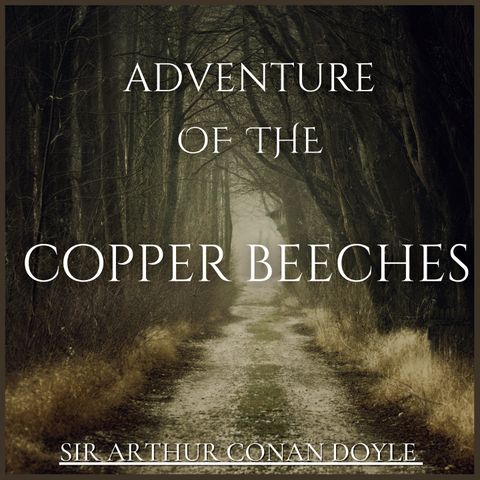This story begins with an unusually long discussion between Holmes and Watson before the actual mystery begins. Perhaps it's because Holmes has his cherry-wood pipe out, which signals to Watson (and the reader) that the detective is in an argumentative mood. The debate centers around how Watson has presented Holmes's adventures; Holmes, who is in an atypically argumentative mood, criticizes Watson for presenting the cases in narrative form rather than as a "course of lectures." He also complains Watson has chronicled too many cases in which no crimes were technically committed at all: the Irene Adler affair, the account of the beggar with the twisted lip, and so on. He argues that in avoiding the sensational, Watson may have focused excessively on the trivial. There is a good deal of situational irony in this statement, given Holmes's famously obsessive interest in trivial details. Perhaps Holmes is just in a bad mood, especially after his letter from Hunter, whose reasons for consulting him—advice on her governess job—seem completely frivolous to him. Regardless, the long (and somewhat tense) philosophical exchange and numerous references to earlier cases are atypical. This story punctures the myth of pure, idyllic rural life. Holmes's statements about the countryside, which he makes during the train ride to Winchester, foreshadow the sordid discovery Miss Hunter makes. Country houses, which Watson finds so charming, "always fill [Holmes] with a certain horror." As Holmes elaborates with remarkable astuteness, "I look at them, and the only thought which comes to me is a feeling of their isolation and of the impunity with which crime may be committed there." This is exactly what has happened at Copper Beeches, the ever-so-lovely Rucastle estate: Mr. and Mrs. Rucastle have been keeping their daughter Alice locked away in a room. In the city, Holmes argues, social pressure forces people to respond to crime, thereby reducing it. Had Hunter been working for a family in the city of Winchester, Holmes says, "I should never have had a fear for her." Holmes's argument—that the city is safer (and thus more desirable) than the country—is interesting, especially because Holmes's entire career revolves around solving crimes, mostly in the city of London. His investigations take him through slums, rough docks, opium dens, and other shabby places, but yet he feels the countryside is more perilous. Perhaps the ordeal of Alice Rucastle is the best piece of evidence to support this argument.
show less


